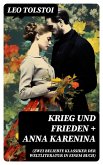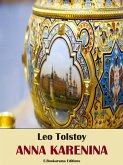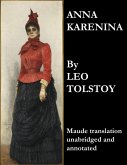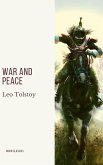In "Anna Karenina," Leo Tolstoy intricately weaves a tale that explores the complexities of love, infidelity, and society's moral constraints. The novel's narrative style seamlessly alternates between psychological depth and social commentary, echoing the influential realist tradition in 19th-century literature. Set against the backdrop of imperial Russia, Tolstoy masterfully contrasts the lives and moral dilemmas of his characters, particularly the tragic figure of Anna, whose passionate affair with Count Vronsky defies societal norms. His exploration of existential questions and the pursuit of personal happiness remains strikingly relevant, as he delves into the themes of family, faith, and the human condition with profound empathy and insight. Leo Tolstoy, a prominent figure in world literature, experienced a profound spiritual awakening in his later years, which informed much of his writing, including "Anna Karenina." His own life struggles and extensive philosophical inquiries into morality and ethics influenced the creation of this masterpiece. Tolstoy's wealth of experience and his critical view of Russian society serve to enrich the novel, making it not just a story of forbidden love, but a complex reflection on the societal pressures that shape individual destinies. I highly recommend "Anna Karenina" to readers seeking a profound literary experience that challenges societal norms and delves into the intricacies of the human psyche. Tolstoy's compelling characters and powerful prose invite introspection, making it essential reading for those interested in the interplay of personal passion and social obligation.
Dieser Download kann aus rechtlichen Gründen nur mit Rechnungsadresse in A, B, BG, CY, CZ, D, DK, EW, E, FIN, F, GR, H, IRL, I, LT, L, LR, M, NL, PL, P, R, S, SLO, SK ausgeliefert werden.









